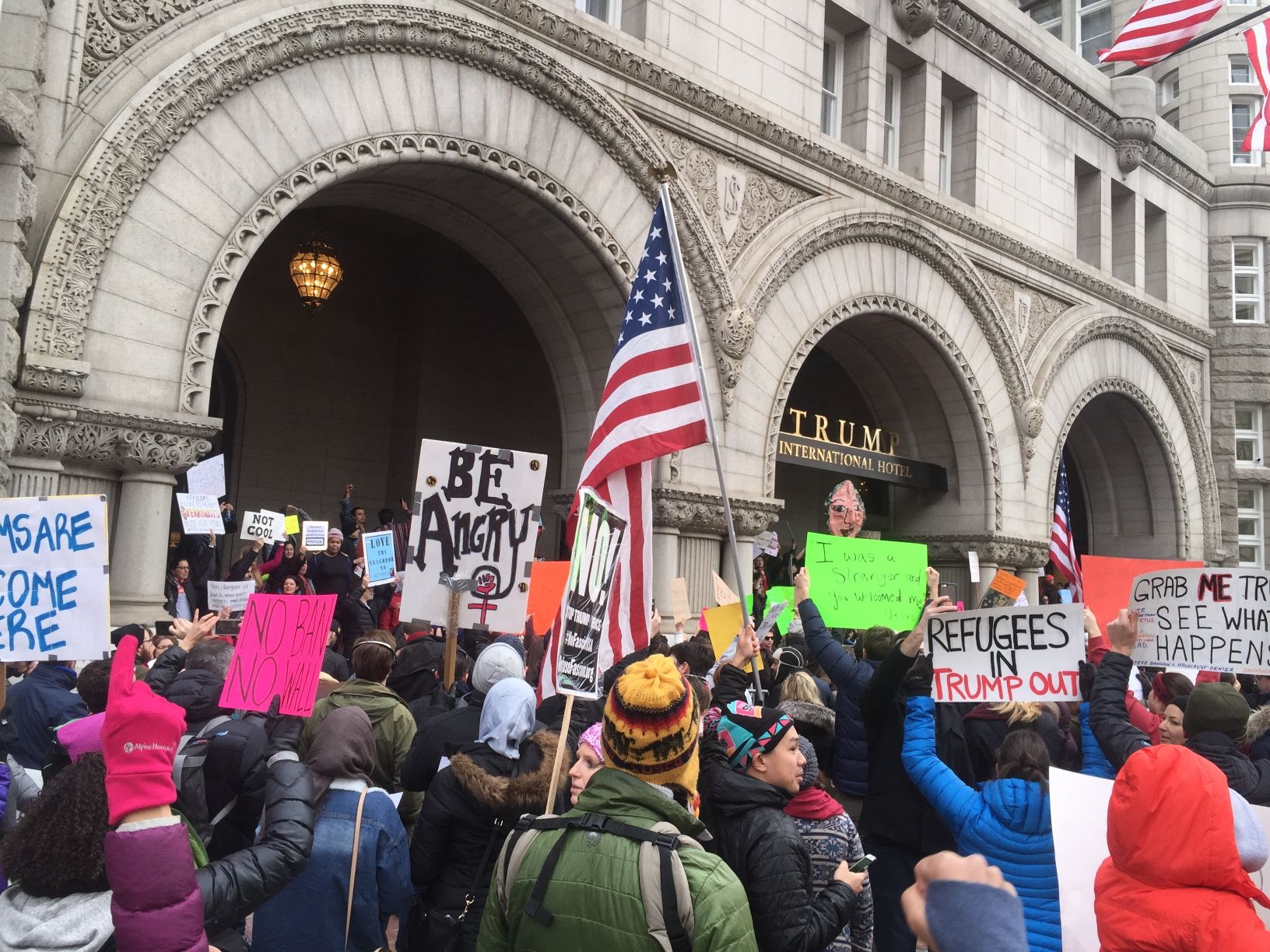Views expressed in opinion columns are the author’s own.
Borders are back, baby. Between Angela Nagle’s recent article making a left-wing case against open borders, and the abominable behavior of American forces at the US-Mexico border last week, I thought it was worth asking what a moral border policy might look like.
I won’t respond directly to Nagle’s arguments, other than to say that they’re wrong and bad. Instead, I thought I’d take a moment to ask what a good border policy would like.
To my mind, there are basically two reasonable positions. The first is open borders. The second is what I’ll call “the reverse Trump policy”: a border that restricts immigration from wealthy nations but guarantees entry for refugees and immigrants from poor countries. There is extensive writing by this point on why open borders are morally defensible. As I understand it, this boils down to the argument that free movement inherently makes people more free. I have to admit, I don’t find this argument entirely compelling.
Consider a country like Iran. Many members of the American foreign policy establishment have advocated for violent overthrow of the Iranian government. This isn’t just theoretical: The CIA actually did help overthrow the Iranian government many years ago. Is it really immoral for Iran to prevent people like John Bolton, Bill Kristol and the late John McCain from entering, even when these people have publicly stated a desire to harm them?
Likewise, Sweden and Hungary have banned Richard Spencer from entering to spread his brand of racist garbage. Does it really increase the freedom of the world to force these countries to admit Spencer and his hatemongering, even if doing so increases the potential for violence? This seems unlikely to me. So let’s take it for granted that open borders isn’t an answer. This does not mean that just anybody can be denied entry. In particular, rich countries like the United States have a duty to admit refugees and poor immigrants. Why?
Consider a classic thought experiment: A person is starving due to circumstances outside their control and may obtain access to food by taking it from someone who has more than they need. Is it OK for the starving person to take the food, even if the person who has extra does not give permission?
Almost everybody says yes, and rightly so. The reason, I submit, is that property rules are only something we bother with because they allow people to satisfy their needs for food, water, housing and other necessities. We instinctively grant that property rules must be dropped as soon as they make it harder for people to satisfy their needs.
But what does this have to do with immigration? Well, rich countries like the United States are in the position of the person with excess food, and refugees and poor immigrants are in the position of the starving person. These people, therefore, have a right to our excess, until we reach the point of no excess. In some traditions, this principle is called “the universal destination of goods”; I once heard a democratic socialist-type candidate for local office summarize it as “equality of outcome until we all eat.”
Note that this argument has nothing to do with questions of “how it benefits us,” but rather questions about what in justice is owed to the less fortunate of the world. This doesn’t mean that we can never admit immigrants based on how much they would benefit the United States; it only means that we cannot do this so long as the potential immigrants have a reasonable moral claim on us, as the poor and refugees of the world do.
We might reasonably deny entry to wealthy people from the United Kingdom, or Norway, or any number of other wealthy countries, if we suspect that their immigration would not benefit us, as long as in doing so, we are not denying these people basic needs to which they have a right. But the poor and needy — the exact people President Trump and Angela Nagle want to keep out — are owed our excess.
It seems to me far better for everyone involved that we give our excess to those who need it in a regularized way. Otherwise, they’ll take the route of the poor man in the thought experiment and seize it without our permission — which they are entitled to do if we will not cooperate. Nobody wants that.
John-Paul Teti is a senior computer science major. He can be reached at jp@jpteti.com.



